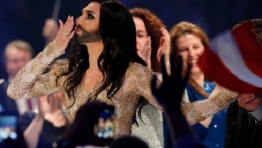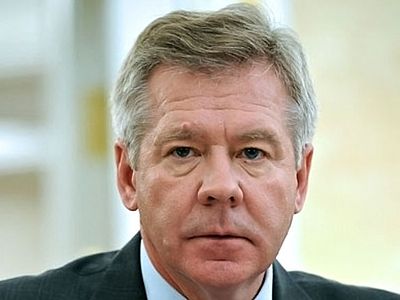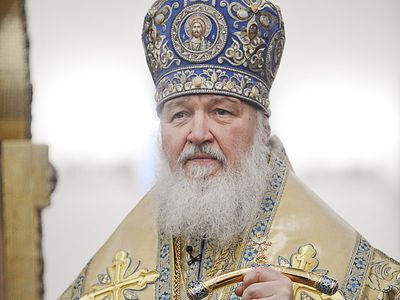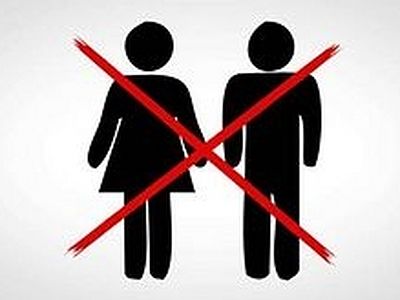Moscow, May 15. 2014
 Conchita Wurst, representing Austria, reacts after qualifying in May 2014's Eurovision contest in Copenhagen.
Conchita Wurst, representing Austria, reacts after qualifying in May 2014's Eurovision contest in Copenhagen.
"The last Eurovision contest's results exhausted our patience," Communist Party deputy Valery Rashkin said about the winner of Europe's top pop competition, 25-year-old Conchita Wurst.
"We must leave this competition. We cannot tolerate this endless madness."
He added that he would like to see the creation of "Voice of Eurasia," which would invite other countries from the former Soviet Union to participate, according to AFP news agency.
A spokesman for the Russian Orthodox Church has also made strong remarks against Wurst.
"The process of the legalization of that to which the Bible refers to as nothing less than an abomination is already long not news in the contemporary world," Vladimir Legoyda, chairman of the Russian Orthodox Church's information department, said according Interfax news agency. "Unfortunately, the legal and cultural spheres are moving in a parallel direction, to which the results of this competition bear witness."
Wurst, whose real name is Tom Neuwirth, has spoken out in favor of gay rights, and after being awarded the glass trophy last week said:
"This night is dedicated to everyone who believes in peace and freedom. You know who you are. We are unity, and we are unstoppable."
The singer also reportedly later addressed the same message to Russian President Vladimir Putin, who last year signed controversial bills in Russia prohibiting the promotion and distribution of pro-gay material.
While Russia has been largely criticized by the international community for its stance on gay issues, its politicians have said that they will not be pressured into accepting Western moral norms.
"Conchita Wurst's Eurovision victory symbolizes the complete collapse of the European Union's moral values," said the Slavic Committee in a statement. "We do not need Europe!"
"There's no limit to our outrage. It's the end of Europe. It has turned wild. They don't have men and women any more. They have 'it'," added nationalist politician Vladimir Zhirinovsky to Rossiya-1 state television.
The annual pop contest is watched by millions across the continent, and invites countries to cast votes on the various acts.
Other Russians, such as pop star Filipp Kirkorov who produced the country's entry in Eurovision this year, took a different view on the controversy, and suggested that Wurst's victory should call on Russians to reconsider homophobic opinions.
"Maybe this is a kind of protest against some of our views in Russia. Maybe we should have a think. Maybe we shouldn't have such a categorical attitude to people of different sexual orientations," Kirkorov told Rossiya-1.
"In a way it probably is a challenge from Europe to us, but let's respect the winner. People don't judge a winner."



